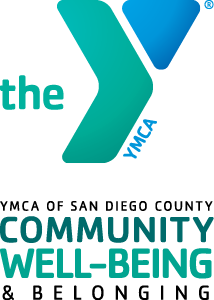BY: KRISTINA HALMAI-GILLAN, LMFT
If there’s one thing we all know, it's stress. Some of us experience a little of it, while others experience crushing amounts. Unfortunately, stress isn’t going away anytime soon, but we can help protect each other from its weight.
Did you know that stress actually plays an important role in the survival and evolution of our human species? At its core, stress is a physiological response that prepares us to move through challenging or threatening situations. This heightened awareness helps us focus and stay motivated, ready to face challenges like predators, competition, and changes in our environment.
While too much stress can be harmful, a moderate amount can actually make us more resilient. It strengthens our body’s ability to handle stress and helps us develop better ways of coping with difficulties. So, while too much stress isn't good for us, a healthy level of stress is important for our species to thrive and adapt to our ever-changing world.
What makes stress manageable? People do. Human connection, through warm and supportive relationships, can offer profound therapeutic benefits.
Here are 5 simple ways that we can help each other through stressful times:
- Active Listening: Being present and attentive when someone is speaking, without judgment or interruption, can be very therapeutic. Active listening involves giving the speaker your full attention, summarizing what they've said to make sure you understand, and giving empathic responses such as, "That sounds hard; I’m glad you shared it with me."
- Empathy and Understanding: Showing empathy means understanding and sharing the feelings of another person. Offering empathy can validate someone's experiences, feelings, and struggles, helping them feel understood and supported. Empathic responses build connection and trust in relationships.
- Validation and Acceptance: Validating someone's emotions and experiences communicates that their feelings are real and worth acknowledgment. Acceptance involves embracing someone as they are, without trying to change or fix them. Both validation and acceptance provide a sense of safety and belonging in relationships.
- Sharing Similar Experiences: If we’ve experienced similar challenges or struggles, sharing our stories is a way to offer perspective, inspiration, and reassurance to others. It builds a sense of connection and solidarity, knowing that they're not alone in their experiences.
- Acts of Kindness and Support: Simple acts of kindness, such as offering a listening ear, providing practical assistance, words of support and hope, or expressing care and concern, can have a therapeutic impact on others. These gestures demonstrate compassion, generosity, and solidarity, strengthening our bonds with another person.
Overall, being therapeutic to one another involves demonstrating empathy, validation, support, and encouragement in our daily interactions. Through connection, understanding, and growth, we can contribute to each other's emotional well-being and resilience.
ABOUT THE AUTHOR
Kristina is a Licensed Marriage and Family Therapist, and serves as the Clinical Innovation Consultant for YMCA Youth & Family Services in San Diego. Kristina is particularly passionate about giving under-resourced youth the opportunities they deserve so that they can identify their interests, unlock their potential, and ultimately contribute to the greater good. She also supports staff development and believes in a relationally based workplace culture. Kristina has worked as a clinician for over 15 years in a variety of settings including residential and substance use treatment.
About YMCA Mental & Behavioral Health Services
At the Y, we pride ourselves on our holistic approach to mental and behavioral health. With over 50 years of experience, we're deeply committed to addressing the mental health needs of our community, particularly among children and youth. Our approach is rooted in evidence-based practices, ensuring that our interventions are effective and relevant. We understand that mental health is diverse and personal, which is why we offer a wide range of specialized programs and therapeutic supports tailored to meet the unique needs of each individual and family. Our comprehensive services include counseling, parent and caregiver support, workplace wellness initiatives, and programs that promote positive youth development. Through these offerings, we aim to build protective factors, reduce stress, and promote well-being for all. Learn more at www.ymcasd.org/mentalhealth.
LOOKING FOR MORE?
Here are additional articles and resources written by our YMCA mental health team.
ACTIVITY: Managing Our Emotions
Five Tips: Understanding Your Teen and Improving Your Relationship
Let's Talk about Compassion Fatigue
The Power of Positive Self-Affirmations
Raising Kids and Teens - a Manual-ish!
STRESS and the Therapeutic Value of Our Relationships



